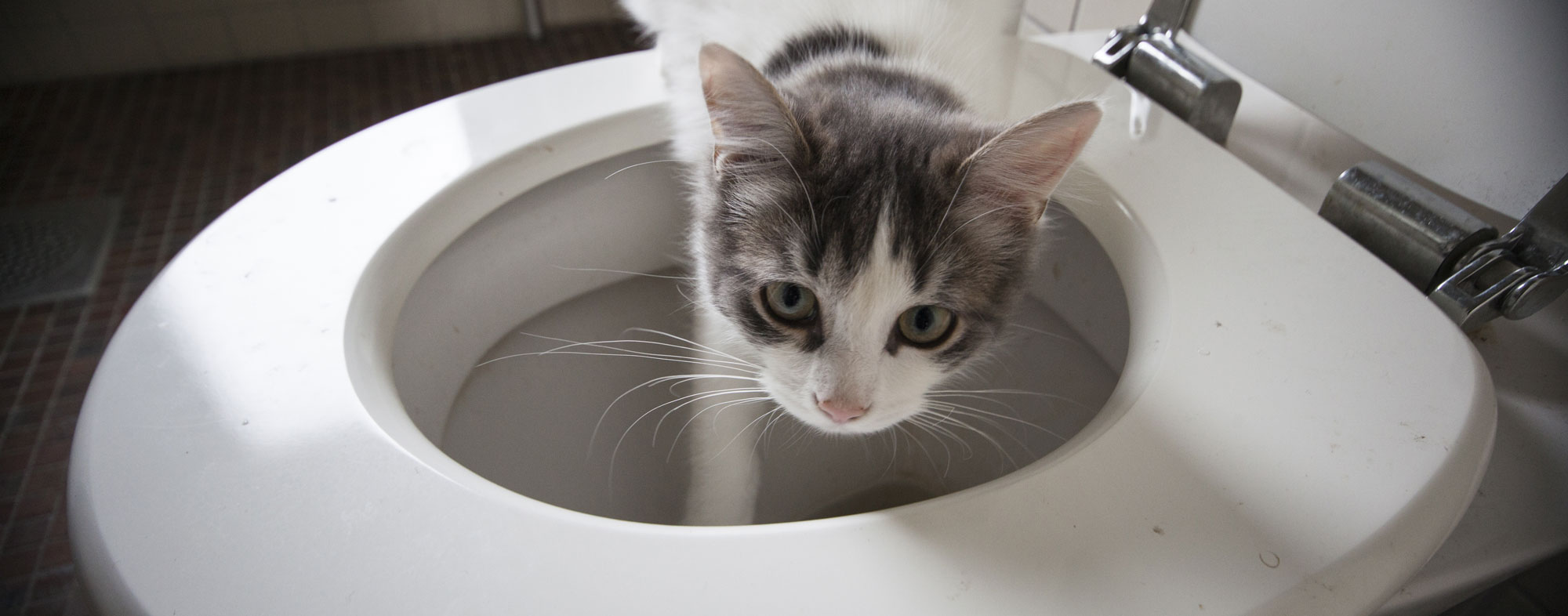Potential Risks of Flushing Cat Poop Down Your Toilet - Advice for Safer Handling
Potential Risks of Flushing Cat Poop Down Your Toilet - Advice for Safer Handling
Blog Article
They are making a number of great points about Can You Flush Cat Poop Down The Toilet? as a whole in the article in the next paragraphs.

Intro
As cat proprietors, it's necessary to bear in mind exactly how we throw away our feline close friends' waste. While it may seem hassle-free to flush cat poop down the bathroom, this practice can have detrimental consequences for both the atmosphere and human wellness.
Alternatives to Flushing
Fortunately, there are more secure and much more accountable methods to get rid of feline poop. Think about the complying with alternatives:
1. Scoop and Dispose in Trash
One of the most typical method of throwing away feline poop is to scoop it right into a naturally degradable bag and toss it in the garbage. Make certain to use a committed clutter scoop and deal with the waste immediately.
2. Usage Biodegradable Litter
Opt for biodegradable feline clutter made from products such as corn or wheat. These trashes are environmentally friendly and can be securely taken care of in the garbage.
3. Bury in the Yard
If you have a backyard, take into consideration hiding pet cat waste in a designated area away from vegetable yards and water sources. Make certain to dig deep enough to avoid contamination of groundwater.
4. Mount a Pet Waste Disposal System
Invest in an animal waste disposal system specifically developed for pet cat waste. These systems make use of enzymes to break down the waste, decreasing odor and environmental effect.
Health and wellness Risks
In addition to ecological problems, purging feline waste can additionally present health risks to human beings. Feline feces might consist of Toxoplasma gondii, a parasite that can create toxoplasmosis-- a potentially severe ailment, specifically for expectant women and individuals with weakened body immune systems.
Environmental Impact
Purging feline poop presents dangerous virus and parasites right into the supply of water, posturing a substantial threat to marine environments. These impurities can adversely influence aquatic life and concession water top quality.
Final thought
Responsible animal possession extends beyond giving food and shelter-- it likewise entails proper waste administration. By avoiding flushing cat poop down the toilet and selecting alternate disposal techniques, we can lessen our ecological impact and shield human health and wellness.
Why Can’t I Flush Cat Poop?
It Spreads a Parasite
Cats are frequently infected with a parasite called toxoplasma gondii. The parasite causes an infection called toxoplasmosis. It is usually harmless to cats. The parasite only uses cat poop as a host for its eggs. Otherwise, the cat’s immune system usually keeps the infection at low enough levels to maintain its own health. But it does not stop the develop of eggs. These eggs are tiny and surprisingly tough. They may survive for a year before they begin to grow. But that’s the problem.
Our wastewater system is not designed to deal with toxoplasmosis eggs. Instead, most eggs will flush from your toilet into sewers and wastewater management plants. After the sewage is treated for many other harmful things in it, it is typically released into local rivers, lakes, or oceans. Here, the toxoplasmosis eggs can find new hosts, including starfish, crabs, otters, and many other wildlife. For many, this is a significant risk to their health. Toxoplasmosis can also end up infecting water sources that are important for agriculture, which means our deer, pigs, and sheep can get infected too.
Is There Risk to Humans?
There can be a risk to human life from flushing cat poop down the toilet. If you do so, the parasites from your cat’s poop can end up in shellfish, game animals, or livestock. If this meat is then served raw or undercooked, the people who eat it can get sick.
In fact, according to the CDC, 40 million people in the United States are infected with toxoplasma gondii. They get it from exposure to infected seafood, or from some kind of cat poop contamination, like drinking from a stream that is contaminated or touching anything that has come into contact with cat poop. That includes just cleaning a cat litter box.
Most people who get infected with these parasites will not develop any symptoms. However, for pregnant women or for those with compromised immune systems, the parasite can cause severe health problems.
How to Handle Cat Poop
The best way to handle cat poop is actually to clean the box more often. The eggs that the parasite sheds will not become active until one to five days after the cat poops. That means that if you clean daily, you’re much less likely to come into direct contact with infectious eggs.
That said, always dispose of cat poop in the garbage and not down the toilet. Wash your hands before and after you clean the litter box, and bring the bag of poop right outside to your garbage bins.
https://trenchlesssolutionsusa.com/why-cant-i-flush-cat-poop/

Do you like reading about Can You Flush Cat Poo or Litter Down the Toilet?? Try leaving feedback further down. We'd be glad to see your responses about this blog post. Hoping that you visit us again in the future. Sharing is nice. You never know, you might be doing someone a favor. I cherish reading our article about Don’t flush cat feces down the toilet.
Book A Service Report this page